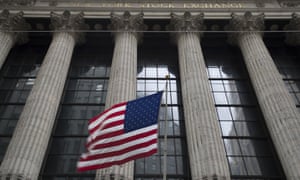Can we trust CEOs’ shock conversion to corporate benevolence?
An apparent move by big business to maximise stakeholder value sounds too good to be true

For four decades, the prevailing doctrine in the US has been that corporations should maximise shareholder value – meaning profits and share prices – here and now, come what may, regardless of the consequences to workers, customers, suppliers and communities. So the statement endorsing stakeholder capitalism, signed earlier this month by virtually all the members of the US Business Roundtable, has caused quite a stir. After all, these are the CEOs of the US’s most powerful corporations, telling Americans and the world that business is about more than the bottom line. That is quite an about-face. Or is it?
The free-market ideologue and Nobel laureate economist Milton Friedman was influential not only in spreading the doctrine of shareholder primacy, but also in getting it written into US legislation. He went so far as to say: “There is one and only one social responsibility of business – to use its resources and engage in activities designed to increase its profits.”
The irony was that shortly after Friedman promulgated these ideas, and around the time they were popularised and then enshrined in corporate governance laws – as if they were based on sound economic theory – Sandy Grossman and I, in a series of papers in the late 1970s, showed that shareholder capitalism did not maximise societal welfare.
This is obviously true when there are important externalities such as climate change or when corporations poison the air we breathe or the water we drink. And it is obviously true when they push unhealthy products such as sugary drinks that contribute to childhood obesity or painkillers that unleash an opioid crisis, or when they exploit the unwary and vulnerable, like Trump University and so many other American for-profit higher education institutions. And it is true when they profit by exercising market power, as many banks and technology companies do.
It is even true more generally. The market can drive firms to be shortsighted and make insufficient investments in their workers and communities. So it is a relief that corporate leaders, who are supposed to have penetrating insight into the functioning of the economy, have finally seen the light and caught up with modern economics, even if it took them some 40 years to do so.
But do these corporate leaders really mean what they say or is their statement just a rhetorical gesture in the face of a popular backlash against widespread misbehaviour? There are reasons to believe that they are being more than a little disingenuous.

